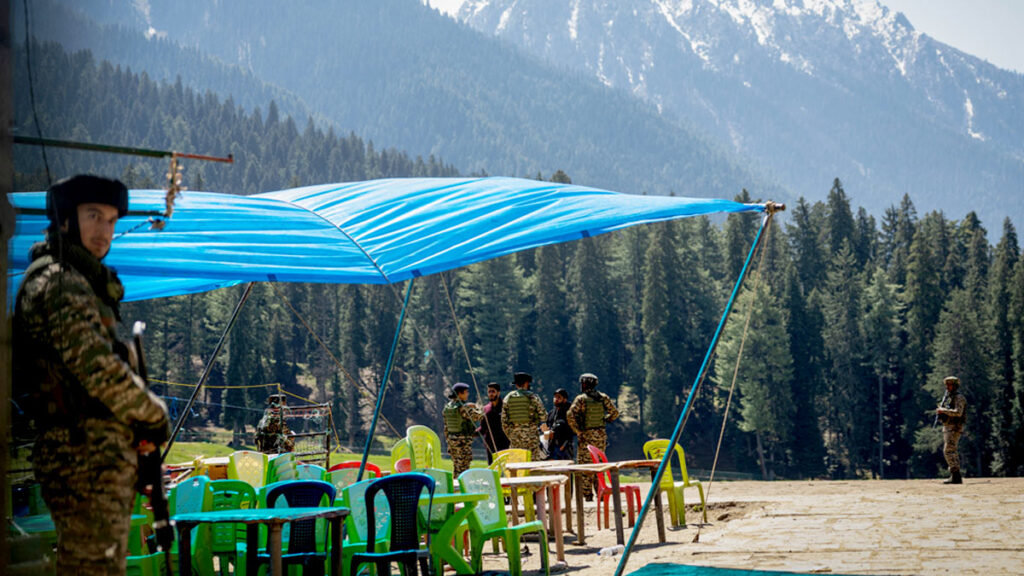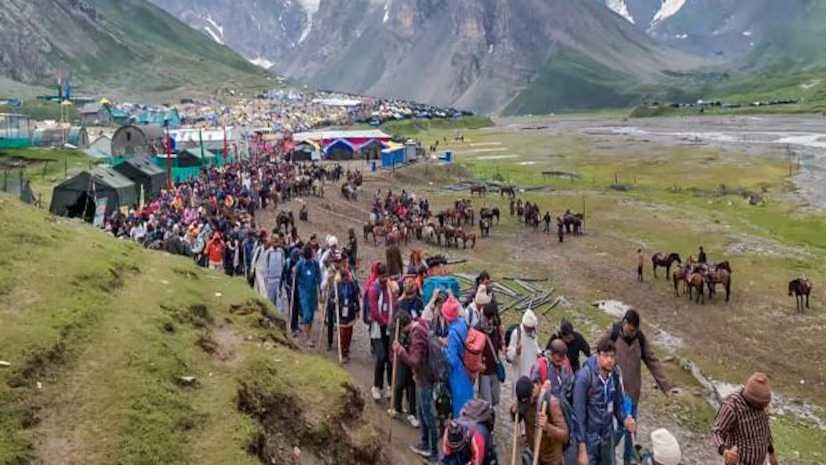The Pahalgam Attack
The Pahalgam attack occurred on April 22, 2025, in the Baisaran Valley near Pahalgam, Jammu and Kashmir, India. This tragic event resulted in the deaths of 28 civilians, including 25 tourists, and injuries to over 20 others. The attack has been described as the deadliest on civilians in India since the 2008 Mumbai attacks.

The Attack
On the afternoon of April 22, five militants armed with AK-47s and M4 carbines entered the Baisaran Valley, a popular tourist destination accessible only by foot or horseback. Disguised in military-style uniforms, the assailants targeted a group of tourists, primarily from various Indian states and one from Nepal. The attackers segregated the men from the women and children, demanding the men to recite Islamic verses to identify non-Muslims. Those who failed were executed at point-blank range. A local Muslim pony ride operator, Syed Adil Hussain Shah, attempted to intervene and was also killed. The attackers fled into the surrounding dense forests after the assault.
Immediate Aftermath
The attack prompted widespread panic and grief. Local residents and pony handlers assisted in evacuating the injured, using ponies and improvised stretchers. Emergency services airlifted critically injured victims to hospitals in Anantnag and Srinagar. In response to the tragedy, the Jammu and Kashmir government closed 48 tourist locations amid intelligence warnings of potential further attacks
The Indian government initiated a comprehensive security review, considering permanent deployment of Army and paramilitary forces in vulnerable areas, especially ahead of the upcoming Amarnath Yatra scheduled for July 3.
Investigation and Responsibility
The National Investigation Agency (NIA) took over the investigation from the Jammu and Kashmir Police. Initial findings pointed towards the involvement of Lashkar-e-Taiba (LeT) and its proxy group, The Resistance Front (TRF). Although TRF initially claimed responsibility, it later retracted the statement. Investigators identified five attackers, including three Pakistani nationals, and noted that local operatives provided logistical support.

Domestic and International Reactions
The attack elicited strong condemnation across India. Prime Minister Narendra Modi cut short his visit to Saudi Arabia to chair an emergency meeting. The Indian government suspended the Indus Waters Treaty, closed the Attari-Wagah border, and expelled Pakistani diplomats. Additionally, India banned all imports from Pakistan and prohibited Pakistani nationals from entering under the SAARC visa exemption scheme.
Internationally, countries like the United States, China, and the United Nations urged both India and Pakistan to exercise restraint and avoid further escalation. Despite these calls, tensions between the two nations intensified.
Military Escalation: Operation Sindoor
On May 7, 2025, India launched Operation Sindoor, conducting airstrikes on nine alleged terrorist infrastructure sites in Pakistan and Pakistan-administered Kashmir. India stated that these strikes were in retaliation for the Pahalgam attack and aimed at dismantling terrorist networks. Pakistan condemned the strikes as unprovoked aggression, reporting civilian casualties and vowing retaliation.
In response, Pakistan claimed to have shot down multiple Indian jets and conducted counterstrikes targeting Indian military installations. Both nations closed their airspace, suspended bilateral agreements, and heightened military readiness along the Line of Control.
Conclusion
The Pahalgam attack marked a significant escalation in the long-standing conflict between India and Pakistan over the Kashmir region. The brutal targeting of civilians, particularly tourists, not only led to immense human tragedy but also intensified geopolitical tensions in South Asia. As both nations navigate the aftermath, the international community continues to advocate for dialogue and peaceful resolution to prevent further loss of life and regional instability.

